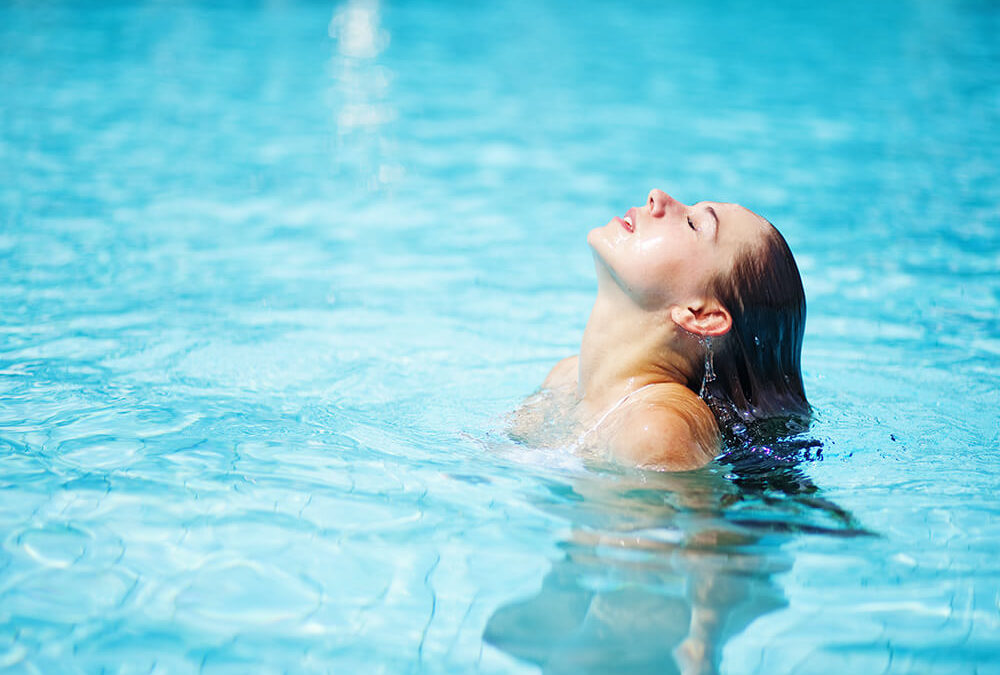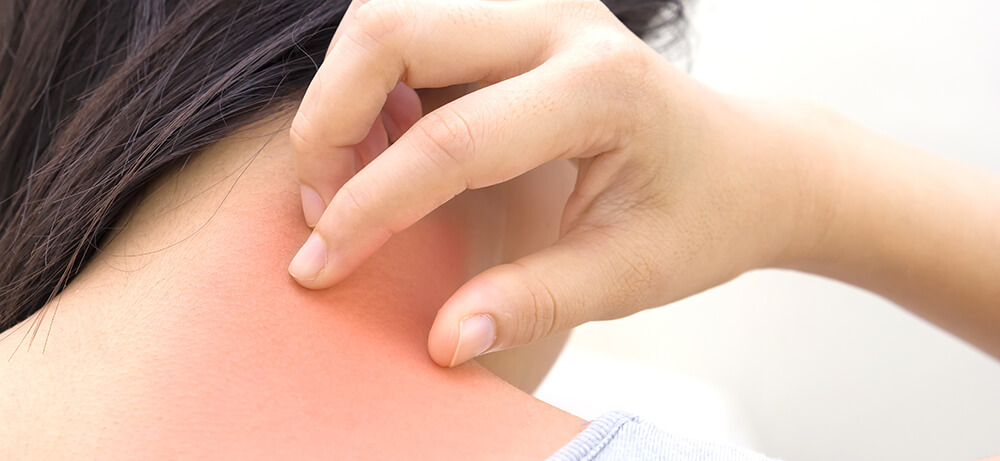Want to learn more?
Have questions?
Want to schedule a consultation?
Want to learn more?
Have questions?
Want to schedule a consultation?
Want to learn more?
Have questions?
Want to schedule a consultation?
What does chlorine do to skin?
Chlorine, like most chemicals in unnatural quantities, can strip the skin of its natural oils and cause irritation. It cannot distinguish between the bacteria in the pool and the natural oils on the skin and, in stripping these oils, the skin is left without a barrier to protect and moisturize itself leaving dry, sometimes scaly feeling skin behind.
What are the long term effects?
Prolonged exposure to chlorine without proper skin care can have many lasting effects. With the unhealthy mix of sun exposure and chlorine, premature aging of the skin can take place. It will be especially noticeable in the face and the backs of the hands since these areas are more sensitive and therefore vulnerable to damage. Another possibility is that prolonged exposure to chlorine can help promote the creation of free radicals which have been linked to skin cancer. The most common side effects of chlorine exposure, however, are dry, irritated skin and acne. Because the protective layer of oils gets lost to the chlorine and pores open up when exposed to water for a long period of time, the skin absorbs the chemicals in pool water which directly lead to irritation and are more prone to clogging which can cause acne.
How can chlorine damage be prevented?
Although most people think soaking their skin in fresh water will help, taking a bath can actually be detrimental to the health of the skin after prolonged exposure to chlorine. The best bet is to take a short shower, focusing on washing the face, body, and hair with a mild soap and shampoo. This will help restore the natural balance of the skin while removing any chlorine left on the body. Moisturizing is also helpful when it comes to curing the skin. Using a mild, unscented moisturizer all over the body will restore a protective layer over and dry or cracked skin. Natural moisturizers and oils, such as coconut oil, can be used in as well. Some people even recommend applying a thin later of coconut oil to skin before swimming as it takes longer for the chlorine to break the barrier, but this can also be problematic when it comes to reapplying sunscreen which is much more important for skin safety. It is also important to notice preexisting skin conditions like eczema and steer clear of pools when irritation flares up.
Generally, chlorine is safe in moderation as most things are. If you are a frequent pool-goer, be cognizant of the way your skin reacts during and after swimming to ensure its safety. If your skin reacts abnormally after exposure to chlorine and the effects are painful or otherwise concerning, consult a doctor.


